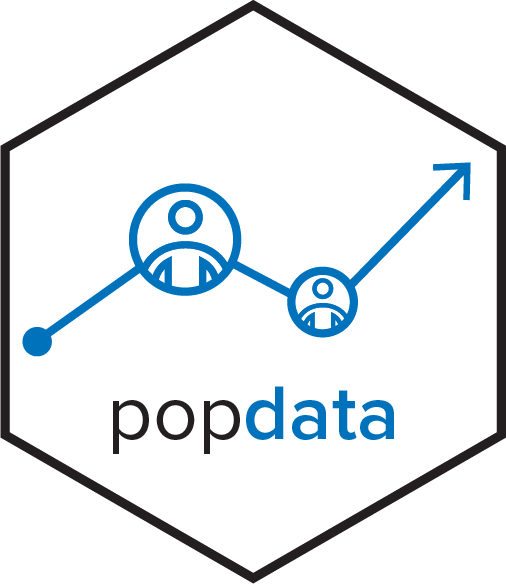popdata is an R client for popdata.unhcr.org, the internal data curation platform for the population statistics gathered by UNHCR operations throughout the world.
Operations report the data they gather there so that Quality Assurance processes can be applied.
This packages allows to pull previews of incoming dataset from the system, before official release (end year and mid-year) in order to:
offer regional figures consolidation preview for bureau directors,
identify potential patterns,
prepare interpretation narratives.
Please check the package vignettes to benefit from reproducible examples and quick-start your own regional reviews.
Installation & Usage
You can get popdata from Github:
## install.packages("pak")
pak::pkg_install("populationstatistics/popdata")Now that chromote can access a web browser (preferably chrome), you can use pd_login to log and store the login cookie in the package cache ($HOME/.cache/R/popdata in Unix based distribution).
library(popdata)
pd_login()
# In the first run, it will generate a session cookie
# that will need be updated if you inactive for a long period of time (approx. 30 min).
## Check that a file was stored
pd_cache_list()
## [1] "popdata_azure_cookies.rds"As long as you keep this rds file in the package cache and as long as you don’t change your POPDATA username and password, you can keep this file to interact with popdata, no need to re-log using pd_login.
Once logged-in, you can run pd_asror pd_mysr to get the data you need from POPDATA (end year or mid year report).
ref <- pd_asr(table = "refugees", year = 2023)The data returned by the server uses UNHCR country codes (which are different from ISO code!). Use pd_augment() to augment the results from the previous query with country and unhcr region name - by “origin” and/ or “asylum”.
ref <- pd_augment(ref, expand = "origin")